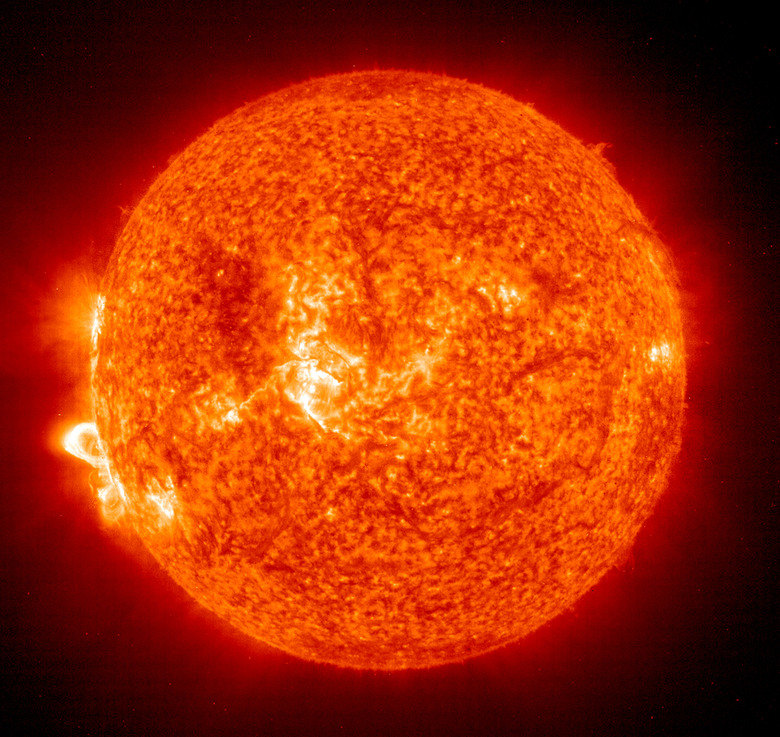Is Solar Energy Renewable Or Non-Renewable?
The concept of a renewable energy source can be broken down very simply: If using a resource today doesn't diminish the availability of that resource tomorrow, then it's renewable. There's a bit of a gray area, however, because the definition of a renewable resource depends on how much you use and how quickly you use it. Even with the fuzzy definitions, it's hard to think of solar energy as anything except renewable.
Renewable Resources
Renewable Resources
A typical definition of a renewable resource is something like that provided for students in Iowa State University's Environmental and Resource Economics class. "A renewable resource is a resource with a natural replenishment rate that augments its own stock (or biomass) at a non-negligible rate." Whether or not a resource replenishes at a non-negligible rate depends upon the rate at which it's being used. If you harvest half a dozen trees an acre, then you could have as many trees at the end of five years as you start with. But if you harvest 80 trees an acre, you might have nothing left at the end of five years.
Nonrenewable Resources
Nonrenewable Resources
Nonrenewable resources are also called exhaustible resources. For example, petroleum deposits need millions of years of geological movement and more millions of years of chemical processing. If humans were only using a few drops of petroleum a year, you could conceivably claim that petroleum is a renewable resource. In fact, according to British Petroleum's June 2013 Statistical Review of World Energy, in 2012 humans used more than 89 million barrels of oil a day. Oil is an exhaustible, nonrenewable resource.
Solar Energy
Solar Energy
There are two primary mechanisms of collecting solar energy and converting it into electricity: solar photovoltaic panels and concentrated solar power (CSP). Photovoltaics convert sunlight directly to electricity, while CSP plants heat a fluid which drives a turbine that produces electricity. The amount of electricity generated depends upon the amount of solar energy collected, and that depends on the weather and the season. It does not depend upon how much solar energy was collected yesterday. That is, the amount of the resource available does not depend upon how much of the resource has been previously used.
The Availability of Solar Energy
The Availability of Solar Energy
The sun puts out just as much energy today as it did yesterday, but that's not always going to be true. A few billion years in the future the sun will use up its hydrogen fuel and the solar output will decrease. The fate of the sun, however, has nothing to do with how much energy humans harvest from sunlight. So, although the sun is not truly an infinite resource, for many millions of generations solar energy will be available, making it a practically inexhaustible, renewable energy resource.
Cite This Article
MLA
Gaughan, Richard. "Is Solar Energy Renewable Or Non-Renewable?" sciencing.com, https://www.sciencing.com/solar-energy-renewable-nonrenewable-7295/. 24 April 2017.
APA
Gaughan, Richard. (2017, April 24). Is Solar Energy Renewable Or Non-Renewable?. sciencing.com. Retrieved from https://www.sciencing.com/solar-energy-renewable-nonrenewable-7295/
Chicago
Gaughan, Richard. Is Solar Energy Renewable Or Non-Renewable? last modified March 24, 2022. https://www.sciencing.com/solar-energy-renewable-nonrenewable-7295/
